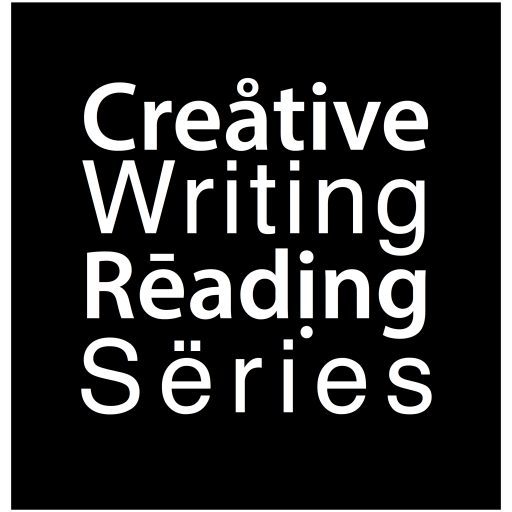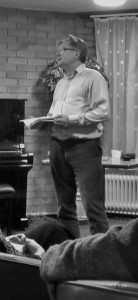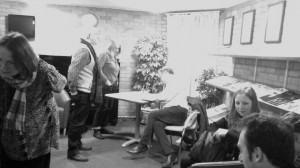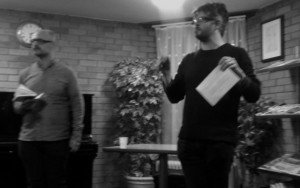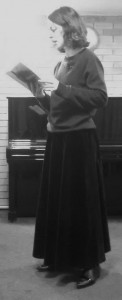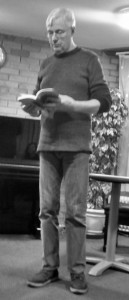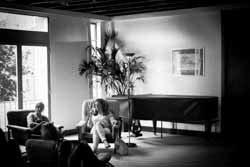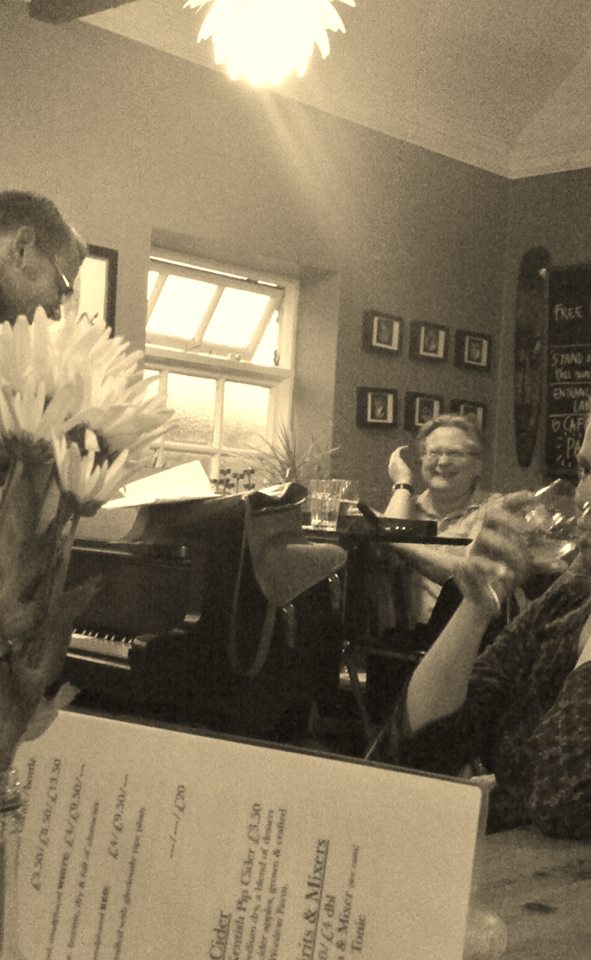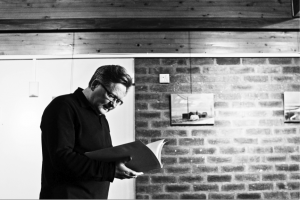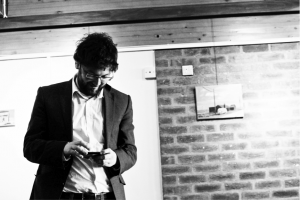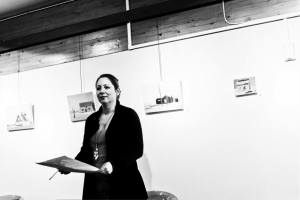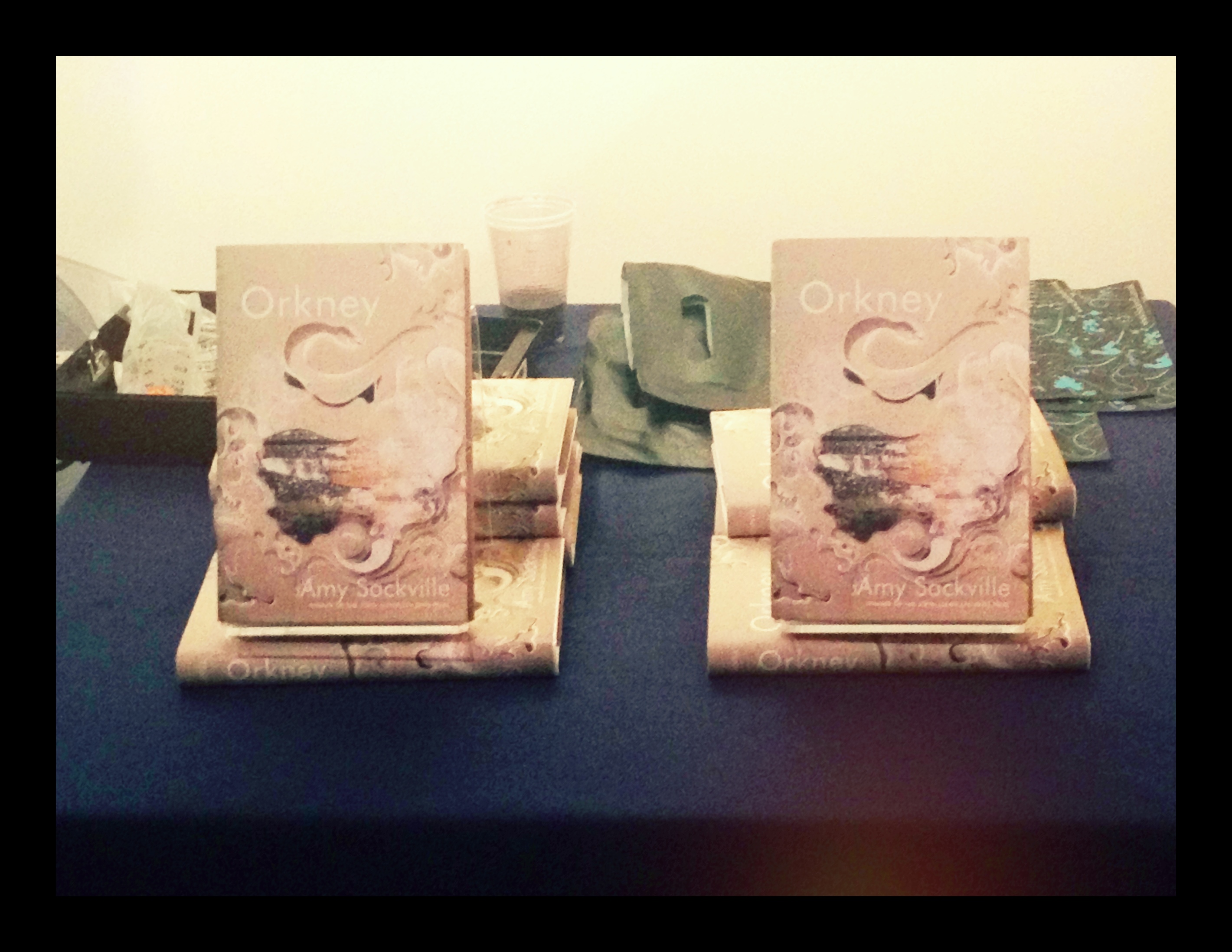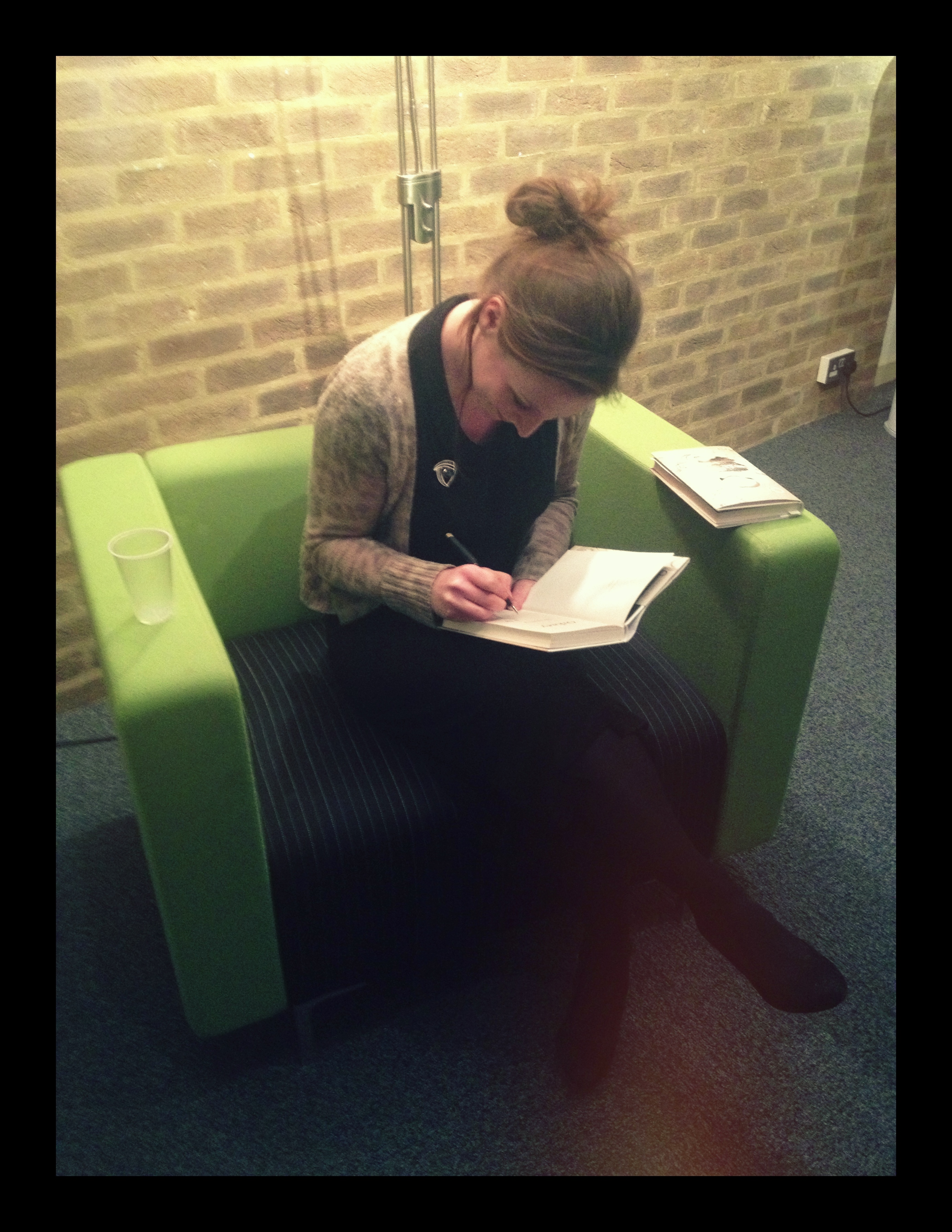Seats and floor space were at a premium in Eliot SCR on Wednesday evening as the centre’s own Simon Smith launched his new collection, 11781 W. Sunset Boulevard.
Patricia Debney introduced Smith. ‘He lives, breathes, reads and writes poetry like no one else I have ever known’, she said, and praised his ‘always evolving poems’, each work seeming to ‘start afresh’.
Smith explained how the book, in two distinct parts, contains poems ‘about transport, rather than transfiguration’. A modest claim typical of Smith, though it was apparent as the evening went on that change and movement in these poems was about more than the mechanics of wheels and engines.
The collection’s title, 11781 W. Sunset Boulevard, is the address of the Getty Institute’s Accommodation in LA, which Smith visited in 2011 when his wife was a Getty Scholar. What first appears to be a rather static title for such a restless collection – a place fixed down by numbers, a point on a map – quickly gathers meaning. This address is more than a destination. It becomes the centre point of a frenzy of writing: 17 poems in 10 days, according to Smith. It is a springboard for departure, back into the poems of Kent and London in the second half of the book. And it is here that Smith spent a day with the archives of poet and translator Paul Blackburn, a catalyst for his current work on Blackburn and an experience explored in the breathless poem ‘11/1/11’.
Smith’s reading began with the first poem in the collection, a response, he said, to his hatred of flying. Written on the plane, ‘Ode: Sat Nav Narrative on Flying into LAX’ builds up details like dabs in a pointillist painting. Here are times, speeds and distances, precisely measured: ‘450 m.p.h. of ground speed dip down at / James Bay distance to LA 2513 miles local / time at present position 12.30p.m.’ Against this catalogue of control the poet’s eyes are ‘gritty-tired, / dogged, filled with the hours bursting / the grit full hours’. A curl of hair acts as a bookmark. The earth curves. Thoughts of home are suspended at 38,000 feet, where ‘everything’s made to look smaller’. Still, but hurtling forward: ‘now / is the moment for change & everything shifts forward next’.
And everything did shift forward. Smith gave us poems of the moment, postcards of fleetingly glimpsed places, impressionistic brushes with found text, street signs, song lyrics, news stations. Smith delivered them baldly, lines running together, taking us from the convoys of ‘muscle cars’ and motorcades past Pacific Coast palm trees and onto the plane home, a ‘long haul long hop deep breath’ of experience. ‘All these things really happened’ Smith explained, making the collection ‘almost like a diary’.
When the plane touched down, we were back in home territory, with part two of the book, ‘Gravesend’. Here was Smith’s ‘A Theory for a Materialist Poetics’, a poem detailing ‘experience crammed in as far as the eye can see’. Smith’s South East is a landscape of train stations, sweet wrappers and Paul Weller lyrics: washing on the line, brambles and railway sidings, a barely concealed threat of malice. ‘We don’t stop at Deptford. No one dare.’ ‘This is Dartford. This is Dartford. Heed the warning.’ Between the PVC and ice-cream van jingles, glimpses of Catullus, Dickens, Henry VIII. And through these detailed despatches recording the ‘ring-pull moment of chance’, the voice of the poet: clear, insightful, and always ‘in pin-sharp form’.
There were many questions, not least from poets in the audience. From Smith’s answers, a piece of distilled advice to keep in any writer’s pocket: ‘If you think it’s a poem, it’s probably not. If you think it’s not, it probably is.’
11781 W. Sunset Boulevard is published by Shearsman.
Next up, readings from the anthology In Protest: 150 poems for human rights, featuring poets Kate Adams, Alia’ Afif Kawalit, Hubert Moore and Caroline Rooney. Eliot SCR, 6pm, Wednesday 5th February.
Until then.
Sonia
Simon Smith is a senior lecturer in Creative Writing at Kent. His previous poetry collections are Fifteen Exits (Waterloo Press) and Reverdy Road, Mercury and London Bridge (published by Salt). His forthcoming The Books of Catullus will be published by Carcanet.
